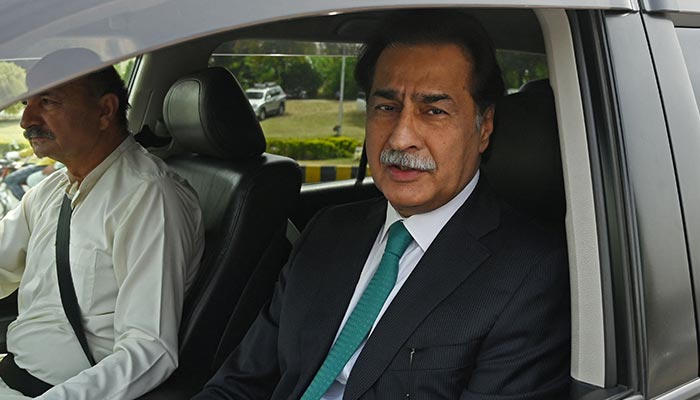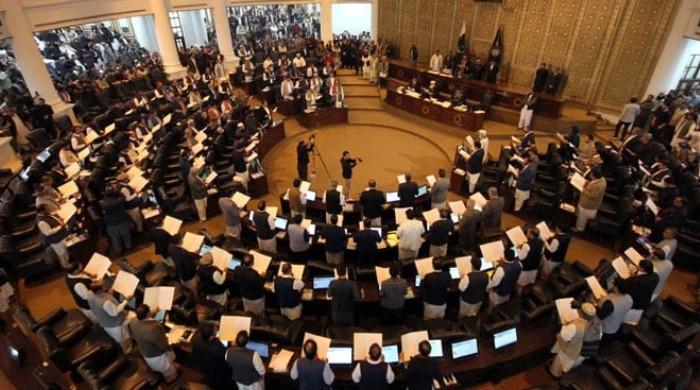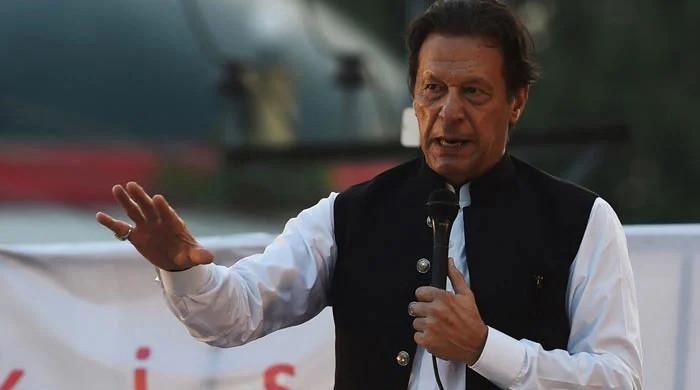Broadsheet evidence manipulated at NAB, says Ayaz Sadiq
Ayaz Sadiq calls for holding those involved in the Broadsheet issue accountable
May 16, 2022

LONDON: Minister for Economic Affairs Ayaz Sadiq has said that those involved in concealing and manipulating documents at the National Accountability Bureau (NAB) in relation to the Broadsheet case should be held accountable.
Speaking to journalists in the British capital, Sadiq said that everyone knows that Shehzad Akbar, the former accountability minister and head of the Assets Recovery Unit (ARU), was involved in the Broadsheet issue and “there are other people including ministers who have been visiting the UK and holding meetings” in relation to the settlement of Broadsheet’s case against Pakistan.
Before the London High Court allowed Broadsheet to seize assets of Pakistan at the United Bank Limited and before the payment was made to Broadsheet, Akbar and others met Broadsheet’s CEO Kaveh Moussavi and held talks.
When asked about Broadsheet Commission Head Justice (retired) Azmat Saeed’s statement that crucial papers related to the Broadsheet case had gone missing, Sadiq said that “those who are involved in this should be held accountable and given the chance we will hold them accountable” but “we have been here for a few days only”.
Speaking about the overall Broadsheet deal, the minister said that it was clear that deliberate harm was caused during the whole process and those involved deserve to be held accountable.
Sadiq said genuine and transparent accountability would take place when the accountability system is transparent, a new NAB chairman is appointed, and, most importantly, the staff who reshuffled things is transferred or re-appointed in a transparent manner.
The minister said that the current coalition government doesn’t want to arrest anyone unnecessarily and “keep them for 90 days in torture cells and then say after 90 days that a reference will be filed. This is not the right approach”.
The Broadsheet LLC was hired by Pakistan more than two decades ago to trace assets belonging to former prime minister Nawaz Sharif and his family members, as well as several other politicians and businessmen including Asif Ali Zardari and Benazir Bhutto.
Pakistan broke the contract in violation of the agreement it had signed and the case has so far cost Pakistan close to $65 million in legal fees and awards after Moussavi, who beneficially owns Broadsheet, brought the case before sole arbitrator Sir Anthony Evans QC under the rules of the Chartered Institute of Arbitrators.
The arbitration judge found that Pakistan had conspired to criminally defraud Broadsheet Isle of Man.
The former PM Imran Khan had ordered an inquiry into the scandal and the one-man inquiry commission under Justice Azmat Saeed had looked into the case.
The commission, in its report, said that the record related to UK-based firm Broadsheet LLC was "missing almost everywhere including the Pakistan High Commission in London".
Since then, independently of the former apex judge’s enquiry, separate inquiries led by senators and MNAs have turned up materials which are the subject of direct starred questions in parliament requiring ministerial responses.
Those questions relating to collusion between NAB officials and the Cayman Islands hedge fund VRGP are awaiting responses from the relevant ministers.
When pressed on this, the minister said that since prima facie evidence of criminal collusion has been found, despite the missing documents, parliamentary answers will need to cater to this to ensure that the criminal investigation of corruption is not compromised.
Conspicuously, the head of the mission did "not consider it necessary" to record the statements of Broadsheet owner Moussavi and Tariq Fawad Malik, who was part of the firm's team in Pakistan.
According to the report: "Even before the commission could become functional upon provision of office space and staff [...] the bureaucracy went into a self-preservation mode and withdrew into its shell like a threatened snail.
"The level of non-cooperation from the various industries/divisions/departments would have made Gandhi proud. Every effort was made to conceal, hide and 'misplace' the relevant record in a rather obvious effort to cover up the incompetence and corruption of the present incumbents, their predecessors and political benefactors."











